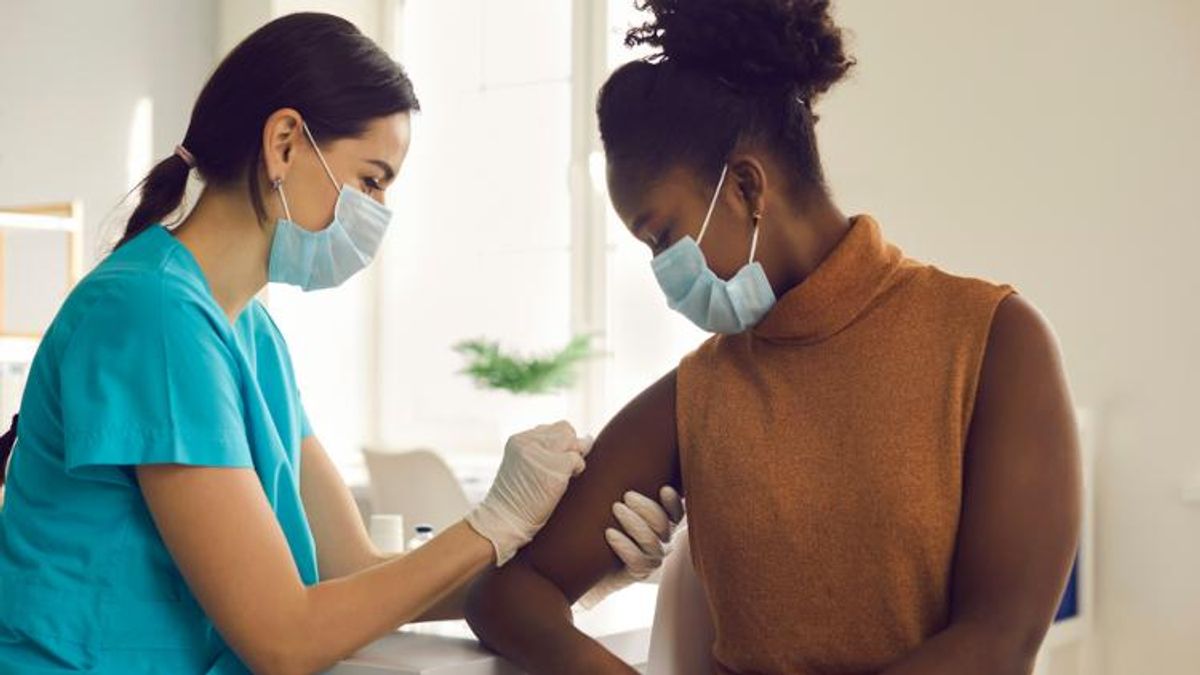Research & Breakthroughs
HIV Vaccine Trial Fails, Study Canceled

Via Shutterstock
Johnson & Johnson's attempted vaccine didn't have the efficacy necessary for the study to continue.
August 31 2021 2:54 PM EST
By continuing to use our site, you agree to our Privacy Policy and Terms of Use.

Johnson & Johnson's attempted vaccine didn't have the efficacy necessary for the study to continue.
Johnson & Johnson and its global partners announced Tuesday that the primary analysis of its Imbokodo study, which hoped to prove the efficacy of an attempted vaccine against HIV, found limited results and will be stopped.
The trial, which began in 2017, consisted of testing the vaccine with 2,600 young women across several sub-Saharan African countries who were deemed at high risk of HIV transmission. Women and girls in the region currently account for about 63 percent of new HIV transmissions, according to a press release.
The Imbokodo vaccine regimen consisted of four vaccination visits annually. Researchers followed the participants through 24 months.
The trial was funded by Johnson & Johnson, the Bill and Melinda Gates Foundation, the HIV Vaccine Trials Network, and the National Institutes of Health.
"We are extremely grateful to the women who volunteered for the Imbokodo study, and to our partners, including the people on the frontlines, all of whom are contributing every day to this enduring quest to make HIV history," said Dr. Paul Stoffels, vice-chair of the executive committee and chief scientific officer Johnson & Johnson. "HIV is a unique and complex virus that has long posed unprecedented challenges for vaccine development because of its ability to attack, hijack, and evade the human immune system.”
Stoffels said that while the trial didn’t provide the desired result, it still provided some scientific findings that can be used in future studies.
“We continue to stand in solidarity with people living with and vulnerable to HIV and remain committed to furthering our research against this devastating virus,” he said.
The efficacy rate of the vaccine was found to be 25 percent, too low for it to continue given the guidelines set up for the trial, according to The New York Times.
The vaccine is just the last in a line of failed vaccines against HIV.
“I should be used to it by now, but you’re never used to it — you still put your heart and soul into it,” said Dr. Glenda Gray, principal investigator of the trial who also serves on the South African Medical Research Council. Gray has spent 15 years working on an HIV vaccine.
Earlier this month, Moderna announced that it would start testing an mRNA HIV vaccine, using similar technology as its COVID-19 vaccine.
The potential vaccine is different than previous ones because the technology used is the same technology used in Moderna’s COVID-19 vaccine. That technology has been in the making for over 10 years.
Moderna’s mRNA vaccine works by inserting mRNA strands into human cells. The mRNA provides a recipe for bits of protein that are also on the virus. The proteins are then targeted by the immune system. Immune cells can detect those proteins and attack them, destroying the virus.
Scientists hope that the mRNA strands can do the same with HIV. Moreover, a possible mRNA vaccine could also help beat HIV variants.